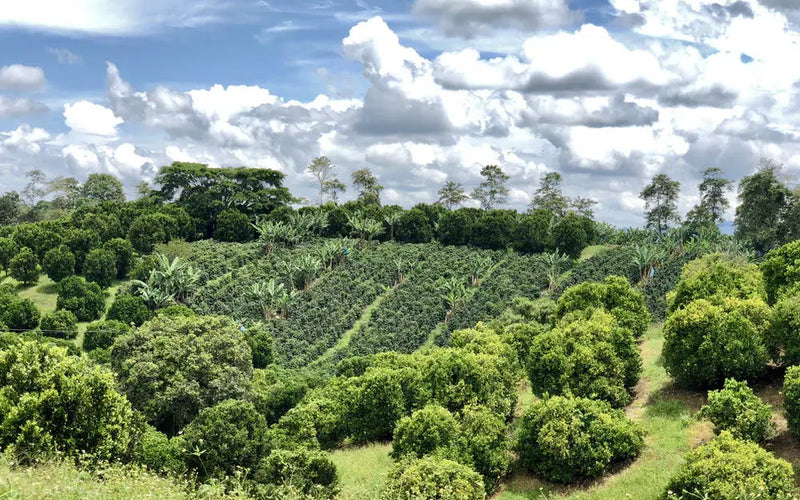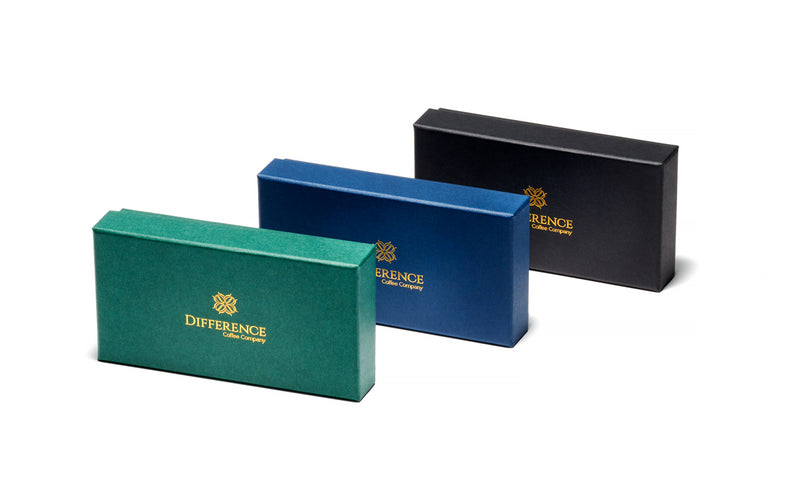SUSTAINABILITY IN COFFEE: PEOPLE, PLANET, PROFIT
Sustainability in coffee has three main pillars: social, environmental, and economic. These line up with what is often referred to as the “triple bottom line”: people, planet, and profits. As there is no single certification that covers all these elements of sustainability, as a company we must first define them and then present the solutions we adopt. We will begin with economic sustainability, which affects the social and environmental aspects of sustainability as well.
ECONOMIC SUSTAINABILITY
Most of the coffee grown today is sold as a commodity and therefore is subject to price fluctuations. Over the past decade, farmers have had to deal with significant increases in the costs of growing coffee, which has forced many to sell their crops at a price below the cost of production. All this, whilst the price of coffee had consistently declined.

Data: Courtesy of macrotrends.net
In response to this, a number of bodies have set up sustainability certifications that impose a set minimum price per pound of coffee regardless of the commodity price, or alternatively a premium over the commodity price. These bodies include the Rainforest Alliance, Fair Trade and UTZ. Whilst these measures represent a step in the right direction, the premium amount these certifications can command from roasters is fairly limited. As a result, even Fair Trade itself admits that ”for many, even that doesn’t amount to a decent income’’.
When farmers are faced with economic hardship, they often resort to recruiting their children to help them work the land and pick up extra coffee cherries (child labour). They might also adopt agricultural practices that exploit the land’s resources. In many coffee estates that employ external coffee pickers, the salaries given to the pickers will be based on the weight of coffee cherries the farmer picked during the day. This naturally causes unequal pay between the young and old, men and women, who have different productivity levels. An older female worker who picks fewer cherries than a younger male picker, for example, is paid less for the same amount of time worked.
The only way out of the global crisis is really to pay more to farmers. Here is where the work of the Specialty Coffee Association really comes into practice. The SCA has created a 100-point grading system for Arabica. The association awards Specialty status to coffees scoring 80 points and over – those displaying superior tastes and aromatics. Rather than being sold as commodity grade, these coffees are sold as single-estate coffees and they often command prices more than double the commodity price.
Difference Coffee’s sourcing philosophy is based upon purchasing the world’s tastiest coffees. These are coffees with some of the highest SCA scores in the world. In other words, they are the coffees for which farmers could charge the highest premium. Moreover, Difference Coffee regularly purchases competition champion coffees from national green coffee competitions such as Cup of Excellence, Best of Panama, and the annual Kona Cupping competition. These coffees are most often auctioned, giving farmers the opportunity to charge super-inflated prices for their champion beans. We are extremely proud of winning these coffees at auction and being amongst just a handful of companies who can claim to be the highest paying coffee roasters in the world!

Photo: Courtesy of Global Coffee Report
SOCIAL SUSTAINABILITY
In response to this, a number of bodies have set up sustainability certifications that impose a set minimum price per pound of coffee regardless of the commodity price, or alternatively a premium over the commodity price. These bodies include the Rainforest Alliance, Fair Trade and UTZ. Whilst these measures represent a step in the right direction, the premium amount these certifications can command from roasters is fairly limited. As a result, even Fair Trade itself admits that ”for many, even that doesn’t amount to a decent income’’.
When farmers are faced with economic hardship, they often resort to recruiting their children to help them work the land and pick up extra coffee cherries (child labour). They might also adopt agricultural practices that exploit the land’s resources. In many coffee estates that employ external coffee pickers, the salaries given to the pickers will be based on the weight of coffee cherries the farmer picked during the day. This naturally causes unequal pay between the young and old, men and women, who have different productivity levels. An older female worker who picks fewer cherries than a younger male picker, for example, is paid less for the same amount of time worked.
The only way out of the global crisis is really to pay more to farmers. Here is where the work of the Specialty Coffee Association really comes into practice. The SCA has created a 100-point grading system for Arabica. The association awards Specialty status to coffees scoring 80 points and over – those displaying superior tastes and aromatics. Rather than being sold as commodity grade, these coffees are sold as single-estate coffees and they often command prices more than double the commodity price.
Difference Coffee’s sourcing philosophy is based upon purchasing the world’s tastiest coffees. These are coffees with some of the highest SCA scores in the world. In other words, they are the coffees for which farmers could charge the highest premium. Moreover, Difference Coffee regularly purchases competition champion coffees from national green coffee competitions such as Cup of Excellence, Best of Panama, and the annual Kona Cupping competition. These coffees are most often auctioned, giving farmers the opportunity to charge super-inflated prices for their champion beans. We are extremely proud of winning these coffees at auction and being amongst just a handful of companies who can claim to be the highest paying coffee roasters in the world!

Thank you note recieved from Kelvin, 7-year-old kid at La Nubes Daycare
ENVIRONMENTAL SUSTAINABILITY
For many people, environmental sustainability begins and ends by questioning whether the packaging they purchase can be recycled or not. When it comes to coffee, however, we need to consider the entire chain from seed to cup and not just the end product.
Coffee farming, specifically growing coffees in monoculture farms, can have a negative impact on biodiversity. It affects not only the wildlife population but can also cause soil depletion, especially in the case of intensive farming. Furthermore, the removal of the coffee seed from the cherry often involves substantial amount of water which, if it isn’t treated, can find its way into local waterways and cause disease and death in plants, animals and humans as well. Finally, the packaging used by coffee roasters to sell their coffees may or may not be recyclable, particularly when using single-serve capsules or when consumers use single-use coffee cups.
Difference Coffee was created to bring to its customers the world’s best coffees in capsules. A lot of people think that capsules cannot be recycled. The truth is, all capsules made of all materials can be recycled, but the problem is the necessary recycling service is somewhat expensive and local councils do not offer it. Many coffee companies are selling capsules under the false pretense of being compostable when they know that the capsules (together with the food waste) will end up in landfill if handled by the councils. After extensive research, we have decided not to pursue this avenue as we believe it could do more harm than good. Instead, we have have partnered with recyclebox.co.uk. For our UK customers, the company will send you a box to fill with used capsules and then collect the box from your home. This service will be available soon, and we’re excited to get it going.

Photo: Courtesy of recyclebox.com







